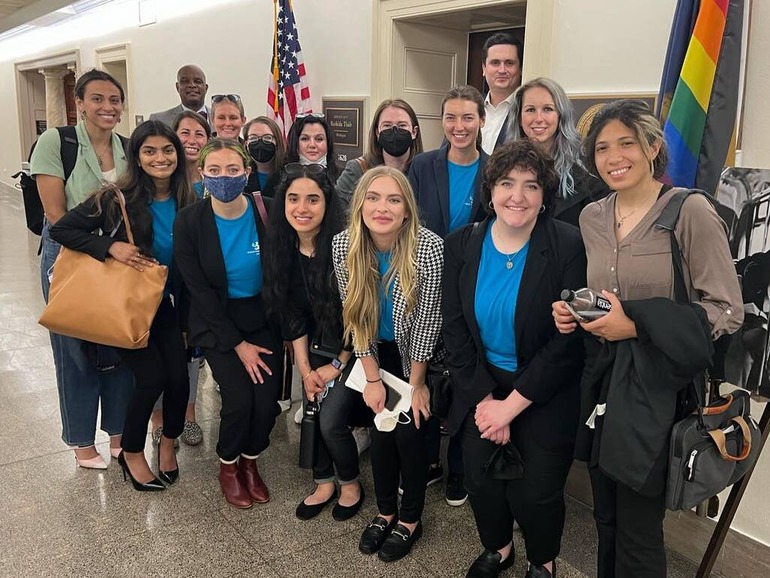
DETROIT – UnitedHealthcare (UHC) is partnering with a Wayne State University student group to offer $50,000 to individuals and/or groups that come up with creative solutions to Michigan’s most pressing health equity concerns.
The insurance company and WSU’s Science Policy Network-Detroit (SciPol) are hosting the Health Equity Challenge, which offers an extraordinary chance to develop innovative ideas to address health disparities in the community. The winning projects will receive $50,000 to implement their ideas with a community-based organization, as well as additional funding to assist with development and implementation.
The application deadline is Nov. 1. Winners will be announced in March at an award ceremony on the WSU campus. For more information or to apply, visit the Science Policy Network-Detroit website.
“SciPol-Detroit’s primary mission is to bridge the gap between science and policy to bring about community-centered policy changes for more equitable health and social outcomes,” said Katie Dwyer, a Ph.D. student and SciPol president. “This opportunity is the first of its kind at WSU, where applicants can apply as individuals or within a small group to address health disparities through collaborations with community-based organizations. UnitedHealthcare greatly values the innovative research that takes place on our campus, and we hope to continue this partnership moving forward.”
According to UHC Population Health Director Emily Williams, the Health Equity Challenge will also provide applicants unique access to, and mentorship from, public health experts. Each Wednesday in October, UHC professionals will host an hourlong virtual workshop from 4 to 5 p.m.
“Applicants can utilize their own relationships that they may have in the community or, if they have an idea and are a little bit stuck and maybe need some introductions to an organization, UHC may be able to help out there,” Williams said. “So, during the October office hours, if they have a need, we’d love to try and help facilitate some introductions or help from a relationship-building standpoint.”
The goal of the equity challenge is to eliminate racial and ethnic health disparities, which has been a long-term goal of the Michigan Department of Health and Human Services.
“Michigan was identified as one of the top five states for the highest COVID-19 mortality rate for Black Americans, thereby signaling the growing need for our state to address and mitigate health disparities across different demographics,” Dwyer said. “UnitedHealthcare is taking a leading stance in addressing these issues by funding several projects that aim to offer new ideas and approaches to closing the health-disparity gap. Ultimately, we hope the outcomes of the Health Equity Challenge will engage the greater Detroit and Michigan communities by bringing about new mechanisms and resources for improving the mental and physical health of residents who, historically, have been medically disenfranchised.”
The topics and potential projects for the equity challenge are open but could include those that give children healthy starts — such as improving health for mothers and their babies — or serving the whole person through coordinating services and reducing opioid and drug-related deaths. Many individuals at WSU and in the community are already doing great work related to these topics.
“Our goal is to have new and innovative approaches to support health equity and reduce differences in both physical and mental health, based upon race, language, culture, gender, and/or sexual orientation within the state of Michigan,” Williams said. “We would really like for individuals to propose how the idea would be sustainable long term as well. That’s been the challenge in and of itself with a lot of difference approaches. Come up with an idea, but make sure it’s sustainable. Would it be something that requires a policy change? Are there different partners in the community that can help with their support? Or is it a pay-for-success model?
“There are endless possibilities and we’re really looking forward to what people come up with.”
